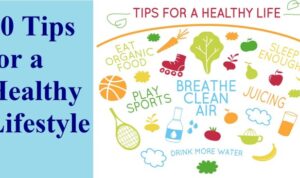Balanced Diet Tips takes center stage, offering a fresh take on maintaining a healthy lifestyle with a focus on nutritious choices and mindful eating habits. From the importance of a balanced diet to practical tips for meal planning, this topic covers all the essentials for a well-rounded approach to nutrition.
Get ready to dive into the world of balanced diets and discover how a few simple changes can make a big difference in your overall well-being.
Importance of a Balanced Diet

Eating a balanced diet is essential for maintaining overall health and well-being. It involves consuming a variety of foods in the right proportions to provide the necessary nutrients for the body.
Benefits of Maintaining a Balanced Diet
A balanced diet offers numerous benefits, such as:
- Providing essential vitamins and minerals for optimal body function
- Supporting healthy growth and development
- Boosting energy levels and improving concentration
- Reducing the risk of chronic diseases like heart disease, diabetes, and obesity
Prevention of Health Issues
By following a balanced diet, individuals can prevent various health issues, including:
- High blood pressure
- High cholesterol levels
- Osteoporosis
- Malnutrition
Food Groups in a Balanced Diet
A balanced diet should include foods from the following groups:
- Fruits and vegetables for vitamins, minerals, and fiber
- Whole grains for carbohydrates and fiber
- Lean protein sources like poultry, fish, beans, and nuts
- Dairy or dairy alternatives for calcium and vitamin D
- Healthy fats from sources like avocado, nuts, and olive oil
Key Components of a Balanced Diet
Eating a balanced diet is essential for overall health and well-being. It involves consuming the right amount of nutrients to maintain proper bodily functions and prevent diseases.
Essential Nutrients for a Balanced Diet
Our bodies require a variety of nutrients to function optimally. These essential nutrients include:
- Proteins: Needed for growth, repair, and maintenance of body tissues.
- Carbohydrates: The main source of energy for the body.
- Fats: Necessary for energy storage and absorption of fat-soluble vitamins.
- Vitamins: Important for various bodily functions, such as immune system support and cell growth.
- Minerals: Play a crucial role in bone health, nerve function, and fluid balance.
Importance of Including Proteins, Carbohydrates, Fats, Vitamins, and Minerals
Each of these components plays a vital role in maintaining good health:
- Proteins: Aid in muscle repair and growth, enzyme production, and hormone balance.
- Carbohydrates: Provide energy for daily activities and help regulate blood sugar levels.
- Fats: Essential for brain function, hormone production, and absorption of fat-soluble vitamins.
- Vitamins: Support immune function, vision, and overall health.
- Minerals: Important for bone health, nerve function, and electrolyte balance.
Role of Fiber in a Balanced Diet
Fiber is a type of carbohydrate that the body cannot digest. It helps in regulating digestion, preventing constipation, and lowering the risk of heart disease.
Tips to Ensure Nutrient Variety in Daily Meals
- Include a variety of colorful fruits and vegetables in your diet to get a range of vitamins and minerals.
- Incorporate lean proteins like chicken, fish, tofu, and legumes for muscle health.
- Choose whole grains over refined grains for added fiber and nutrients.
- Opt for healthy fats like avocados, nuts, and olive oil instead of saturated fats.
Planning a Balanced Diet: Balanced Diet Tips
Planning a balanced diet for a week is essential to ensure you are getting all the necessary nutrients your body needs to function properly. Here are some steps to help you plan a balanced diet:
Portion Control and Importance of Moderation
- Aim to fill half your plate with fruits and vegetables, one quarter with lean protein, and one quarter with whole grains.
- Avoid oversized portions by using smaller plates and bowls.
- Listen to your body’s hunger and fullness cues to avoid overeating.
Strategies for Meal Prepping
- Plan your meals for the week ahead of time to ensure you have all the necessary ingredients on hand.
- Cook large batches of meals and portion them out into individual containers for easy grab-and-go options throughout the week.
- Include a variety of foods from different food groups to ensure you are getting a well-rounded diet.
Incorporating Different Food Groups into Each Meal
- Include a source of protein, such as lean meats, beans, or tofu, in each meal.
- Add a serving of fruits and vegetables to every meal for added vitamins, minerals, and fiber.
- Incorporate whole grains like brown rice, quinoa, or whole wheat bread to provide sustained energy.
Tips for Maintaining a Balanced Diet

Eating a balanced diet is essential for overall health and well-being. Here are some practical tips to help you maintain a balanced diet:
Eating the Rainbow for a Diverse Nutrient Intake
One way to ensure you are getting a variety of nutrients is to “eat the rainbow.” This means incorporating a colorful array of fruits and vegetables into your meals. Different colors in fruits and vegetables indicate different nutrients, so by eating a variety of colors, you can ensure you are getting a diverse range of vitamins and minerals.
Reading Food Labels for Informed Choices, Balanced Diet Tips
When grocery shopping, take the time to read food labels. Pay attention to serving sizes, calories, and the ingredients list. Look for items with minimal processing and ingredients you can pronounce. Avoid foods high in added sugars, saturated fats, and sodium. Choosing whole foods and cooking from scratch can help you make healthier choices.
Staying Hydrated as Part of a Balanced Diet
Drinking an adequate amount of water is crucial for maintaining a balanced diet. Water helps with digestion, nutrient absorption, and overall hydration. Aim to drink at least 8-10 cups of water per day, and more if you are active or in hot weather. You can also include hydrating foods like fruits and vegetables in your diet to help meet your hydration needs.
